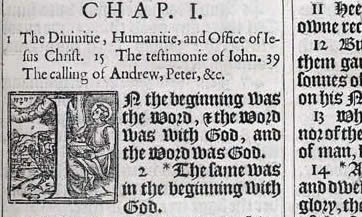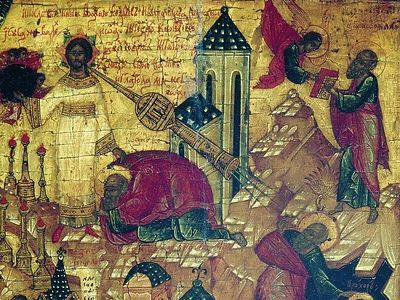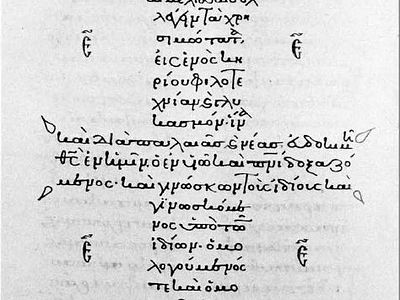
One doesn't usually look to Orthodox Jewish sources for guidance on the kind of English that is best suited for worship, but years ago I stumbled across some very telling comments in the preface to the book To Pray as a Jew, by Rabbi Hayim Halevy Donin. Commenting on his translations of the prayers his book would discuss, he says:
I have decided to retain the use of "Thou," "Thee," and "Thy" in all passages that address themselves directly to God. The more contemporary "You" and "Your," which I had at first considered using, made me uncomfortable in some instances, although I find it difficult to explain why this should be so. The Hebrew atah (and the Yiddish du) reflect the familiar and the intimate approach to God with which I am comfortable. Still, English seems to demand, at least in some places, the more reverent "Thou" and "Thy" (To Pray as a Jew: A Guide to the Prayer book and the Synagogue Service, New York: Basic Books [Harper Collins], 1980, p. xx.).
I would argue that Rabbi Donin was right in his gut, but wrong in his explanation. It makes no sense to limit the use of "Thee" and "Thou" to God, and so he correctly senses the inconsistency of his translation choices here. He is also incorrect in his assumption that these forms are not the "intimate you" he sees in Hebrew and Yiddish. In fact, "Thou" is simply the English form of the German "Du", which is where the Yiddish pronoun comes from (English being, after all, a Germanic language).[1] He is correct, however, that in English there is a need to use more traditional language when praying because we sense that the sacredness of the act requires a more reverent form of the language. Traditional English also has the added advantage of being more precise, because it allows for a distinction between the second-person singular pronoun ("thou"), and the plural ("you"), which is present in both Hebrew and Greek, and often this distinction is very important to the meaning of a text. Aside from all of that, praying "O You Who..." just doesn't work.
From time to time we hear some in the Orthodox Church arguing that English-speaking Orthodox Christians should abandon the use of "King James English" and simply use contemporary English in our translations of the Scriptures and the services. This is, however, a fairly recent phenomenon. From the time that the first modern English-speaking Orthodox Christians began translating the services (the earliest known example being in 1760), up until the 1960's, it never seems to have even occurred to anyone that they should translate the services into anything other than the traditional style of English that we find in the King James Version, and the pre-1980's editions of the Book of Common Prayer.
Even non-native English speakers followed this pattern. Nicholas Orloff, who translated a number of texts at the end of the nineteenth century did so, though these texts are notoriously clunky, and no longer in common use. Likewise Fr. Seraphim Nassar, published a compendium of liturgical texts in 1938 (affectionately known as the "Nassar Five Pounder") that used traditional English, and this text is still in use today. In 1906, Isabel Hapgood first published her Service Book, which was blessed by the Hieromartyr Tikhon of Moscow, and funded by theTsar-Martyr Nicholas II (who spoke English in the home with the Tsarina Alexandra [who was raised by Queen Victoria], and their children). She was an Anglican, and she clearly modeled her translation on the style of the Book of Common Prayer. This text is likewise still in use today, and was highly influential on subsequent translations of the services. More recently, the Lenten Triodion translated by Metropolitan Kallistos (Ware) and Mother Mary is probably one of the most standard English texts in use in the Orthodox Church today, being in use in the vast majority of parishes that use English. The fact is, one cannot find a complete set of service books in English that are not in traditional English, and the obvious reason for this is because this how the English-speaking Orthodox Christians generally think it ought to be, and this has been true for more than 250 years.
But some might object that this is just due to Protestant influence. The fact that this is not true is shown by the oldest Catholic translation of the Bible in English, the Douay Rheims Bible, as well as the text of the "Hail Mary" that is still in general use:
Hail Mary, full of grace. The Lord is with thee. Blessed art thou amongst women, and blessed is the fruit of thy womb, Jesus. Holy Mary, Mother of God, pray for us sinners, now and at the hour of our death. Amen.
The Orthodox approach to translation has generally been a conservative one. Slavonic was never the street language of Slavic speakers. It was a high form of Slavic language, with a huge amount of created terms, using Slavic root words, and putting them together in the same way Greek theological terms were constructed. The end result was a highly elevated language which was within reach of Slavic speaking people, but was not the language of the street.
When the services were translated into Chinese and Japanese, for example, the style used was that which was used in traditional Chinese and Japanese religious practice, which was an older form of these languages.
Furthermore, contrary to popular belief, the Greek of the New Testament was not really "street Greek." It is certainly in a form of Koine Greek, but it is in a Semitic style that is full of Hebraisms rooted in the Old Testament, both the Hebrew original, and the Greek Septuagint (which likewise is full of Hebraisms. See The Semitic Style of the New Testament, and Was the Bible Written in ‘Street Language’?, by Michael D. Marlowe). Furthermore, even in the Hebrew Old Testament, you find the use of intentional archaisms, not to mention the fact that Jews continued to use the Hebrew text of the Old Testament long after Hebrew ceased to be the spoken language of the people (and in fact, they continue to use it to this day).
The Orthodox Church has always taken the position that the language used in our services and translations of Scripture should be within reach of the people (which is why Christians did not just continue to use the Hebrew Old Testament, and why we have always had so many different liturgical languages in use), but the Church has not felt the need to use the language of the street, or to regularly update our translations.
This does not mean that we should never update our translations. While I would argue that when it comes to the text of Scripture we should begin with the text of the King James version, I would not argue that there is no need to correct the KJV or to update it when changes to English have rendered a particular text very difficult for the average person to properly understand. One does have to learn some vocabulary and get used to some older grammatical forms, but for the most part, these are not difficult.
Traditional English is also not a dead language. It is simply a form of English used in worship and in other solemn contexts. People use this language every day in prayer, and they do so naturally. Even among those who pray extemporaneously, they are able to pray in this manner without any difficulty, nor is what they say difficult to comprehend. For an example, I would refer people to one of the many extemporaneous prayers Billy Graham gave at his evangelistic rallies.
I think we should take to heart the comments of Metropolitan Athanasios of Limassol, Cyprus to Dr. Kyriakos Markides:
We must avoid addressing ourselves to God in a superficial casual way. For this reason Elder Sophrony goes so far as to say that the language we use in prayer must be different from the ordinary language of everyday usage. That is why he insisted that the language of the liturgy should not be translated into the contemporary spoken vernacular.
“A lot of people today would strongly object to that suggestion,” I pointed out. “They demand that church services be conducted in the spoken ordinary language so that they can understand what is being said.” Why did Elder Sophrony hold to such a position?
Elder Sophrony claimed that when we conduct the liturgy using everyday language, we lower the level of our communication with God.
“How is that so?” I asked.
He believed that ordinary language carries meanings and images from our daily reality that usually lack the element of holiness and purity. On the other hand, when we address ourselves to God in a language that has, as it were, an exclusive usage within the boundaries of the Ecclesia, the very words and sounds of that language evoke sacred feelings and images that facilitate communication with God. A special language that offers precise and exclusive meanings can automatically be experienced as the language of the Ecclesia. It carries greater spiritual force (Markides, Kyriakos C., Gifts of the Desert: The Forgotten Path of Christian Spirituality, Random House-Doubleday, NY, 2005).
Update: I received an interesting comment from Jason Rogers: "In linguistics, using different forms of a language in certain contexts is referred to as "registers" and they exist *almost* in every language. Religious registers are very common, if not the most common, kind of register. so in a sense, humans are predisposed, or 'hardwired,' to use religious registers and I think this, in part, explains why older, elevated styles of language are important to us."
You can watch a pretty good documentary about the history of the King James Bible:
For more from the narrator, Adam Nicolson, see his excellent book on the subject: God’s Secretaries: The Making of the King James Bible, (New York: Harper Collins Publishers, 2003).
Here also is a lecture on the subject by Adam Nicolson:




